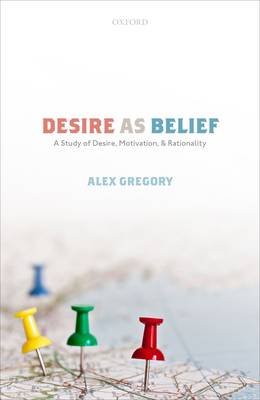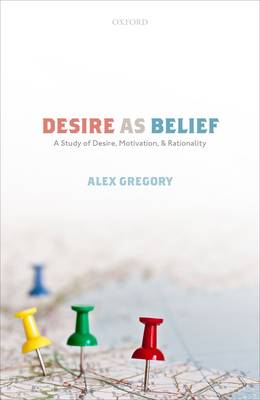
- Afhalen na 1 uur in een winkel met voorraad
- Gratis thuislevering in België vanaf € 30
- Ruim aanbod met 7 miljoen producten
- Afhalen na 1 uur in een winkel met voorraad
- Gratis thuislevering in België vanaf € 30
- Ruim aanbod met 7 miljoen producten
Zoeken
€ 161,45
+ 322 punten
Omschrijving
A popular model of human action treats it as universally explicable by appeal to what we want. A related view evaluates our actions as rational or otherwise by appeal to what we want. However, these dominant views sit in tension with two other common sense ideas. First, that our normative beliefs -- such as our beliefs about what we ought to do -- sometimes explain our actions. Second, that those beliefs are crucial for determining whether our actions are rational. To try and resolve these tensions, this book defends 'desire-as-belief', the view that desires are just a special subset of our normative beliefs. This view entitles us to accept orthodox models of human motivation and rationality that explain those things with reference to desire, while also making room for our normative beliefs to play a role in those domains. This view also tells us to diverge from the orthodox view on which desires themselves can never be right or wrong. Rather, according to desire-as-belief, our desires can themselves be assessed for their accuracy, and they are wrong when they misrepresent normative features of the world. Hume says that it is not contrary to reason to prefer the destruction of the whole world to the scratching of your finger, but he is wrong: it is foolish to have this preference, and this is so because this preference misrepresents the relative worth of these things. This book mounts an engaging and comprehensive defence of these ideas.
Specificaties
Betrokkenen
- Auteur(s):
- Uitgeverij:
Inhoud
- Aantal bladzijden:
- 240
- Taal:
- Engels
Eigenschappen
- Productcode (EAN):
- 9780198848172
- Verschijningsdatum:
- 30/08/2021
- Uitvoering:
- Hardcover
- Formaat:
- Genaaid
- Afmetingen:
- 163 mm x 241 mm
- Gewicht:
- 521 g

Alleen bij Standaard Boekhandel
+ 322 punten op je klantenkaart van Standaard Boekhandel
Beoordelingen
We publiceren alleen reviews die voldoen aan de voorwaarden voor reviews. Bekijk onze voorwaarden voor reviews.







